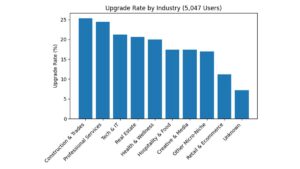Introduction
Tax season is a pivotal time for small business owners and self-employed professionals. It’s more than just paying dues – it’s about maximizing financial outcomes through smart planning and organization. Navigating the ever-changing maze of tax laws requires preparation, awareness, and the right tools to manage receipts and records effectively.
Recognizing the importance of tax season is the first step toward maximizing potential returns and minimizing liabilities. Whether you’re capitalizing on eligible deductions, understanding new tax reforms, or ensuring compliance, your effort now protects your business from surprises later. With proper organization and strategy, tax season becomes an opportunity to strengthen your financial foundation – not just a box to check.
Understanding Your Tax Obligations
For small business owners and self-employed individuals, understanding your tax obligations is key to both compliance and optimization.
The main tax responsibilities include:
- Income Tax: All income generated from business activities is subject to federal income tax. Your reporting method depends on your structure — sole proprietor, partnership, LLC, or corporation.
- Self-Employment Tax: Covers Social Security and Medicare for self-employed individuals. Anyone earning more than $400 in net income must pay it.
- State and Local Taxes: Sales, property, or state income taxes may apply depending on your location. Knowing your jurisdiction’s requirements helps you stay compliant.
Understanding these obligations lets you avoid penalties while identifying deductions and credits that reduce taxable income. With tools like SparkReceipt, you can easily capture and organize the expenses you plan to claim – from travel and supplies to home office costs – ensuring you have proof for every deduction.
Essential Tax Preparation Tips
Effective tax preparation improves both compliance and cash flow. Here’s how to make the most of the season.
Organize Your Financial Documents
Maintaining detailed financial records is essential.
Keep all receipts, invoices, bank statements, and previous returns stored safely and easy to access. This practice speeds up filing and simplifies reviews or audits. Well-organized documents save hours when the deadline looms.
Using expense management software like SparkReceipt automates this process by digitizing receipts, categorizing expenses, and ensuring you never lose a deductible item.
Understand Deductible Expenses
Knowing which expenses are deductible can drastically reduce what you owe. Common deductible expenses include:
- Home Office Expenses: Deduct the portion of your home used regularly and exclusively for business.
- Travel Costs: Flights, accommodation, and meals related to business are deductible.
- Necessary Supplies: Office tools, software subscriptions, and work materials typically qualify.
With automated categorization through SparkReceipt, identifying these deductions becomes effortless — your expenses are tracked in real time, ready for tax season.
Utilize Pre-Accounting Software
Pre-accounting software eliminates the stress of manual bookkeeping. It automatically records and categorizes expenses, generates financial summaries, and integrates smoothly with your accountant’s workflow. This reduces errors and ensures your records are complete before filing.
Consider Quarterly Tax Payments
Paying estimated taxes quarterly helps avoid year-end surprises and large lump-sum payments. It also stabilizes cash flow. With clear, up-to-date financial reports from SparkReceipt, you can project earnings and plan your payments accurately throughout the year.
Stay Informed About Tax Law Changes
Tax laws shift often. Staying informed through IRS updates, tax seminars, or professional advice ensures your business remains compliant and your strategy current.
Planning for Tax Season
Smart tax planning happens year-round – not just in April. Build habits that keep your books clean and ready.
- Set Aside Money Monthly: Keep tax funds in a separate account to avoid year-end strain.
- Review Quarterly: Check your records every quarter to adjust savings, track deductions, and confirm income accuracy.
With consistent organization and pre-accounting tools, you’ll transform tax preparation into a steady, predictable process.
Common Mistakes to Avoid
Avoiding these pitfalls will save time, money, and stress:
- Missing Deadlines: Use digital reminders to stay ahead of quarterly and annual deadlines.
- Underreporting Income: Reconcile income records regularly using your accounting or receipt management software.
- Overclaiming Deductions: Only claim expenses supported by receipts. SparkReceipt keeps your proof neatly attached to every entry.
Staying accurate protects your business from penalties and builds trust with your accountant and tax authorities.
Conclusion
Effective tax preparation isn’t just about compliance – it’s about control. By organizing receipts, understanding deductions, and planning all year long, small business owners and self-employed professionals can reduce liabilities and maximize returns.
With SparkReceipt, your records are always ready. The app tracks receipts, organizes expenses, and produces tax-ready summaries so you can focus on what matters: running your business.
Make this tax season your smoothest one yet.




